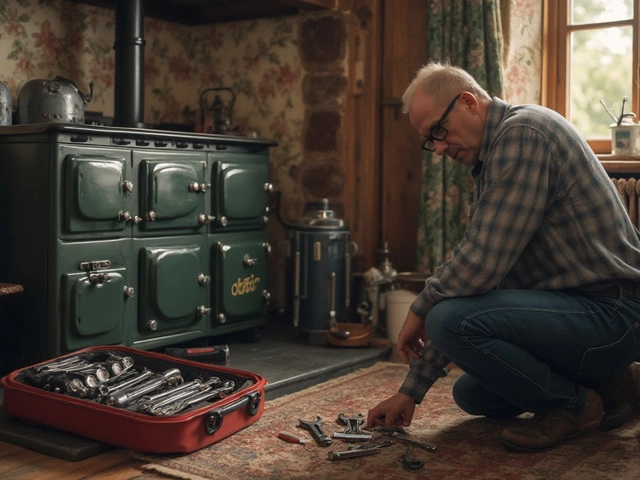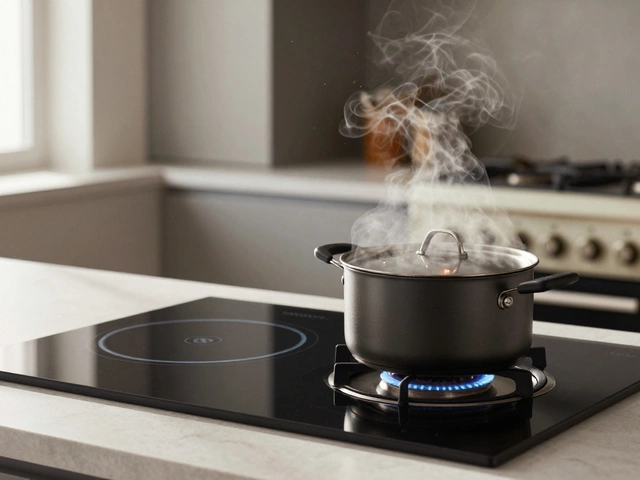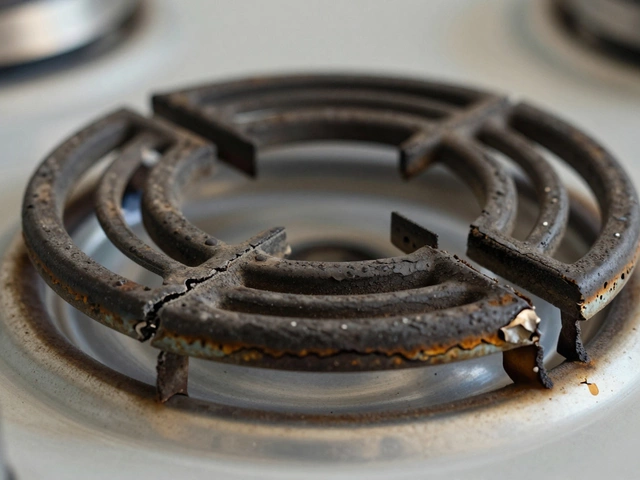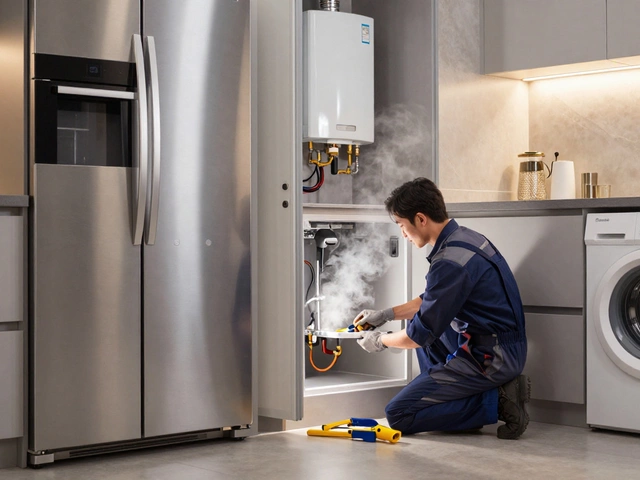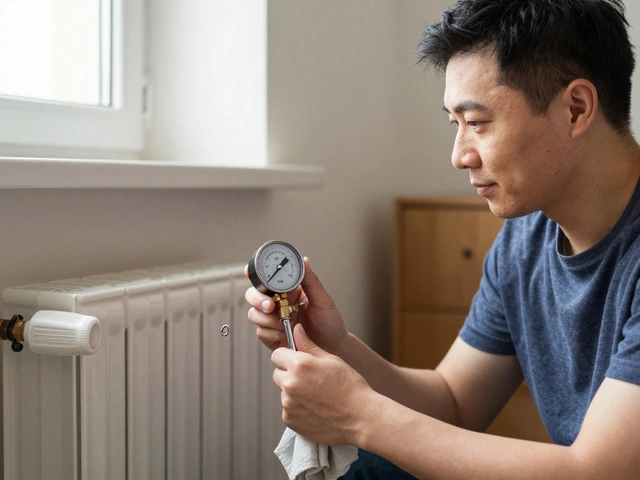Home appliances are more than just machines; they're the backbone of a smoothly running household. Think of your trusty refrigerator keeping your veggies fresh, or the washing machine tirelessly tackling those piles of laundry. Each of these appliances plays a crucial role, and understanding how to select, use, and maintain them can save you money and time.
Let's delve into four essential appliances that you likely rely on daily: the refrigerator, washing machine, oven, and dishwasher. We'll not only explore their functions but also offer some handy tips on maintaining them in optimal condition, ensuring they serve you well for years to come.
- Refrigerator: Cooling and Storage
- Washing Machine: Laundry Care
- Oven: Cooking and Baking
- Dishwasher: Cleaning Efficiency
- Maintenance Tips: Prolonging Appliance Lifespan
Refrigerator: Cooling and Storage
When you open the door of your refrigerator, you enter a world of preserved freshness, where your produce, meats, and dairy products sit in wait, kept in optimal condition by an intricate system of cooling. The refrigerator is truly a marvel of modern appliance technology, tasked with extending the shelf life of foods and keeping beverages chilled. Yet, keeping it running efficiently requires more than simply plugging it in. Understanding its mechanics and maintenance can lead to lasting performance.
At the core of a refrigerator’s function is its cooling mechanism, centered around a process called refrigeration. This involves the removal of heat from the inside compartments, which is maintained by a closed system of evaporating and condensing coolant. It's interesting to note how even a small leak in this closed system can drastically affect the appliance's efficiency. Regular checks on the rubber seals of the doors can prevent such inefficiencies. When these seals are compromised, the cold air escapes, forcing the refrigerator to work harder, leading to higher energy bills.
Storage within a refrigerator is more strategic than one might think. Items such as milk and eggs, which are sensitive to temperature fluctuations, should be placed on the shelves – not the doors – where temperatures remain consistently cooler. Moreover, avoiding overcrowding allows for proper air circulation, which ensures even cooling. It’s a small change that can make a big difference in maintaining the quality of your foods. According to Sarah Scott, a well-known culinary scientist,
“Proper organization of your fridge is not just about aesthetics; it significantly affects how well your food is preserved.”
Energy efficiency is another pivotal aspect. Did you know that setting your refrigerator to temperatures between 37°F to 40°F helps in saving energy while keeping your food safely stored? This recommended range prevents spoilage and the growth of harmful bacteria. Moreover, cleaning the coils behind or beneath your refrigerator can also improve its efficiency. Dust accumulation here can cause the compressor to overheat. Making it a habit to vacuum these coils every six months can lead to better appliance performance and longevity.
For many households, a refrigerator is a significant financial investment. In selecting a new model, it's wise to look for features like energy star ratings, adjustable shelving, and smart technology that can monitor temperature and humidity levels. These features not only enhance the convenience but also help in long-term savings by reducing energy consumption. Here's a quick reminder, never place hot foods directly into the fridge as it increases the internal temperature, which can lead to food spoiling faster.
Refrigerators from different brands tend to offer varying capacities and functionalities. Embracing these advancements and maintaining regular care can transform an everyday appliance into an enduring ally in preserving your family’s food and drink. It serves as a testament to how vital these home appliances are within a household and the value they bring when well-maintained and properly utilized.
Washing Machine: Laundry Care
The trusty washing machine is a modern marvel beckoning from laundry rooms worldwide. Indeed, it has transformed what was once a time-consuming, arduous chore into a relatively quick and mindless task. The swishing sounds of water and the gentle hum of a spinning drum can lull you into tranquility. Yet, beneath that stainless-steel finish rests a finely tuned piece of technology that deserves attention and care. Neglecting its upkeep can lead to poor performance or, worse, a complete breakdown.
Of course, selecting the right setting is pivotal; using cold water saves energy and helps maintain colors, while hot water is often reserved for heavily soiled garments. It is also crucial to mind the load size. While it might be tempting to cram every single sock and towel, overloading can lead to an inefficient wash cycle. In fact, experts recommend filling the drum about three-quarters full to achieve optimal results without putting too much strain on the machine's motor. Hence, balancing laundry loads ensures your machine doesn't work harder than necessary, prolonging its lifespan.
Let's not forget about cleanliness, either. Regularly cleaning the drum of your washing machine prevents residue buildup, which can otherwise result in unpleasant odors and even mold. Every few months, run an empty cycle using hot water and a cup of white vinegar to keep things fresh. It might sound trivial, but leaving the door open after each wash allows the moisture inside to evaporate, helping to ward off dampness.
The choice between front-load and top-load models also deserves a mention, as both offer distinct advantages. Front-loaders generally use less water and energy, making them a popular choice for environmentally conscious consumers. On the other hand, top-loaders are often praised for their ergonomic design, allowing users to retrieve forgotten socks mid-cycle. Regardless of choice, regular maintenance applies across the board.
Appliance service professionals often emphasize the importance of checking hoses for leaks or cracks. A simple visual inspection every six months prevents potential disasters and expensive home repairs. Additionally, pay attention to the rubber gasket for it can also be a breeding ground for mold. Regular wiping with a damp cloth will help keep these seals clean, ensuring an airtight closure.
With the advent of smart technology, many modern washing machines come equipped with sensors that automatically adjust water levels, cycle length, and even detergent use. This innovation aims to maximize efficiency while minimizing waste. Whether high-tech or basic, giving a bit of attention to this often-overlooked household companion can go a long way. In the words of a notable expert in the industry:
"A washing machine is not merely an appliance; it is a partner in the pursuit of cleanliness."Take time to understand your machine's needs, and your laundry duties will become more seamless and effortless.
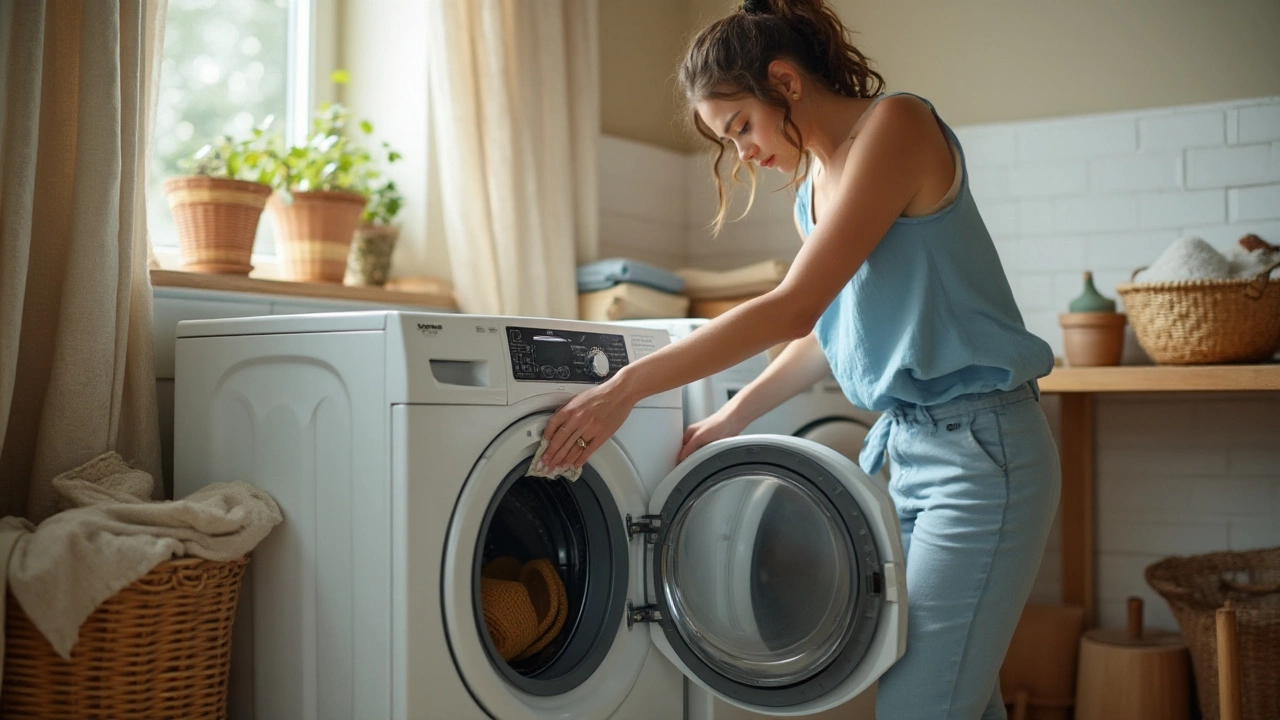
Oven: Cooking and Baking
The oven, a quintessential fixture in most kitchens, is the heart of countless culinary adventures. It's where magic happens, transforming raw ingredients into mouth-watering meals. Whether baking a simple loaf of bread or roasting a gourmet dinner, the oven plays a critical role. These kitchen workhorses come in numerous designs, from gas to electric, each with its unique benefits. Regardless of type, keeping your oven in tip-top shape is crucial. Regularly cleaning the internal cavity and checking door seals can save energy and improve performance.
Let’s discuss self-cleaning options available in many modern ovens. While it may sound fantastic, self-cleaning involves heating the oven to exceedingly high temperatures to burn off any food residues. Although convenient, it’s essential to use this feature wisely – excessive use can potentially damage oven components over time. Instead, many culinary experts recommend giving your oven a good scrub with baking soda paste every few months as a more gentle and eco-friendly cleaning option.
An oven's efficiency also hinges on its frequent maintenance tasks, like calibrating the temperature settings. This ensures that when you set your oven to 350 degrees, it actually heats to that temperature. Miscalibration could mean the difference between a perfectly baked pie and one that's disappointingly burnt or undercooked. Longevity of your oven extends beyond cleanliness and calibration. Avoid using aluminum foil directly on the oven racks as it can damage the interior surfaces. Placing hefty items on open doors can also affect hinges, leading to improper sealing over time.
The versatility of ovens isn't just limited to baking; they allow for an array of cooking methods such as broiling and grilling. Broiling, often overlooked, can quickly sear foods with top-down intense heat which browns food while keeping it juicy inside. Grilling in the oven offers a similar experience to outdoor grilling, ideal for days when weather is unfavorable. For consistent results, always preheat your oven before placing any dish inside. Using the right cookware can also greatly influence cooking quality. Darker pans absorb more heat, fostering a crispy finish, whereas lighter pans are preferable for gentler baking like cakes.
"The oven is truly a chef’s best friend if treated right, offering precision and variety in cooking," notes culinary expert Deborah Madison, shedding light on its integral role in creating fine dishes.
Moreover, it's fascinating how using your oven effectively can impact your home's energy bills. Consider using the convection setting if your oven has one. It circulates hot air around the oven, frequently leading to faster cooking times and, consequently, energy savings. Keep in mind, however, that for delicate items like soufflés or certain pastries, conventional settings might yield better outcomes. By understanding how to manage these settings, users can optimize their cooking processes for both food and energy efficiency, solidifying the oven’s place as a hero in kitchen appliance service regimes.
Dishwasher: Cleaning Efficiency
When it comes to cleaning efficiency in the kitchen, few appliances can compare to the sheer convenience of a dishwasher. These machines save us hours by cleaning everything from greasy pots and pans to delicate glassware, all at the touch of a button. A well-maintained dishwasher not only cleans well but is energy efficient, using less water and power than traditional handwashing methods. Buying a dishwasher involves choosing one that matches your kitchen needs – from the number of place settings to specialized cycle options and even picking models which boast lower decibel levels for a quieter kitchen environment.
The importance of loading your dishwasher correctly cannot be overstated. The placement of dishes impacts the cleaning process significantly. For example, plates and large dishes should always go in the bottom rack where the spray arm is strongest. Glasses and more delicate items should be placed in the top rack to avoid cracking during the strong wash cycle. It’s vital to scrape off big food scraps before stacking dishes, but there's no need to rinse them completely because modern dishwashers are designed to handle some residue.
One lesser-known trick for boosting your dishwasher’s performance involves water temperature. Dishwashers work best with hot water. So, run the kitchen tap until it gets hot before starting the appliance. This ensures that the initial fill of the machine is at the optimal temperature, which helps dissolve detergents more effectively, providing spotless results. Most experts recommend a range of 120-150 degrees Fahrenheit for optimal performance. Newer models come equipped with a heating element and sensors to maintain this temperature throughout the wash cycle.
Another tip for maintaining the appliance is regularly cleaning the filter. Look for it at the bottom of the machine. Handwash it under hot water to clear out food particles, and you’ll notice an improvement in cleaning results immediately. Similarly, running an empty cycle with a dishwasher cleaning solution every month helps to remove hidden grease and odors. Keeping the dishwasher functioning efficiently involves regular maintenance along with understanding simple usage principles. These actions not only improve efficiency but also extend the lifespan of the appliance.
The use of the right detergent also plays a key role in how effectively your dishwasher cleans. Some households have hard water that can affect detergents' performance. Consider using a rinse aid or changing to a detergent specially formulated for hard water. A
study by the University of Bonn highlighted that "modern dishwashers use up to 80% less water than handwashing."This is a huge benefit for water conservation, especially in areas where droughts and water restrictions are common.

Maintenance Tips: Prolonging Appliance Lifespan
When it comes to keeping your home in top shape, understanding basic maintenance routines for your appliances can make all the difference. Think about your **appliance service** like scheduling routine oil changes for your car. Instead of waiting for an emergency, you're taking proactive steps to avoid unnecessary stress and costs. Let’s dive into some insightful tips for managing those unsung heroes of your household.
Refrigerator Care: Keeping Cool Efficiently
Your refrigerator is always working, day and night, quietly preserving your groceries. Keeping this powerhouse in good condition is essential. Clean the condenser coils every six months; this part tends to collect dust and grime, doing so will enhance the efficiency of your cooling system. The rubber door seals, or gaskets, are sometimes overlooked. Ensure they're airtight by closing the door on a piece of paper or currency bill. If it slides out easily, it's time for a replacement. This simple test can help you save on energy bills while extending your refrigerator's service life significantly.
Washing Machine Wisdom: Extending the Drum’s Life
Your washing machine is another essential **home maintenance** ally. Avoid overloads to keep the motor and drum bearings in good shape. Using too much detergent may seem harmless, but it can lead to buildup, making your appliance work harder than necessary. Every month, run an empty cycle with hot water and two cups of vinegar to clean the inside. This breaks down any lasting residue and prevents mold growth, keeping those nasty odors at bay. Interestingly, a long-term study found that regular drum cleaning reduces mechanical faults by up to 25%.
"Household appliance failures rarely have a single cause. Neglected maintenance can often trigger a chain reaction of costly problems," says Lauren Sands, an expert from the Home Appliance Institute.
Oven Operation: Avoiding Sticky Situations
Your oven does the heavy lifting when it comes to cooking and baking. Keep it spotless with routine cleaning to prevent stubborn grime build-up. Opt for the self-cleaning mode if your appliance includes this feature but don't rely on it solely. Keep an eye on the heating elements and replace them if they appear cracked or damaged. Investing in a high-quality oven thermometer ensures you're serving dishes cooked at just the right temperature. An interesting fact that appliance repair technicians often share is that cleaning spills immediately can prevent up to 80% of smoke and burning odors.
Dishwasher Tips: Spotless Dishes Every Time
Your dishwasher needs some TLC too. Regularly clean the filter at the bottom; it collects food particles and ensures water flows freely. An annual or biannual check of the spray arms clears any clogs, ensuring that every dish is sparkling by the end of the cycle. Interestingly, loading it properly can actually improve performance — avoid cramming it full, and let the water freely circulate. This small change can improve efficiency by around 15%, which in turn can lower your water bill over time.
Incorporating these **household tips** into your routine ensures that these invaluable machines continue to run smoothly and efficiently. Remember, a little maintenance goes a long way in prolonging the lifespan of your appliances, keeping your home functional and worry-free.




